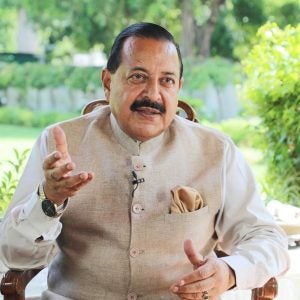 Nuclear Power Ghana (NPG) has selected Nsuban and Obotan as two potential sites to host its first NPP. Detailed technical assessments are being concluded to determine the preferred sites to host the 1,000 MWe plant by 2030. However, it is believed that Nsuban in the Western Region is the preferred location, while Obotan in the Central Region will serve as a backup site. Four sites were initially selected for the construction of plant.
Nuclear Power Ghana (NPG) has selected Nsuban and Obotan as two potential sites to host its first NPP. Detailed technical assessments are being concluded to determine the preferred sites to host the 1,000 MWe plant by 2030. However, it is believed that Nsuban in the Western Region is the preferred location, while Obotan in the Central Region will serve as a backup site. Four sites were initially selected for the construction of plant.
Dr Stephen Yamoah, Executive Director of NPG announced this at the Ghana Industrial Summit & Exhibition in Accra under the theme, “Industrialisation Through Sustainable and Efficient Supply Chains”. Ghana aims to add nuclear energy to its energy portfolio to support industrialisation in face of the dwindling of traditional energy sources.
The announcement says the two locations have been subjected to the International Atomic Energy Agency’s Site Selection for Nuclear Installations criteria, which include seismology assessment, flooding issues, population, and projected population growth.
Dr Yamoah said the selection of the site, was an important step in the second phase of the Nuclear Power Programme and precedes the selection of a vendor/partner to construct the plant. He noted that the nuclear power project involved a complex supply chain with quality control issues at different levels and urged industries to take steps to maximise its economic opportunities.
He said progress had been made in the selection of vendors and that the government would announce which partner country would build the nuclear plant by 2030. Seth Twum Akwaboah, CEO of the Association of Ghana Industries (AGI), welcomed the site selection noting that construction of the nuclear facility was an important project that AGI valued because of the immense business opportunity in the sector. “Stable and cheap power is very important and no country has developed without it. This is a single project that will create jobs and provide more opportunities,” he said.
Earlier, the US announces additional support for Ghana’s civil nuclear energy programme under the State Department’s Foundational Infrastructure for the Responsible Use of Small Modular Reactor Technology (FIRST) programme. US Principal Deputy Assistant Secretary of State for International Security & Nonproliferation Ann Ganzer announced further support to establish Ghana as a Small Modular Nuclear Reactor (SMR) Regional Training Hub and centre of excellence for the sub-Saharan African region.
Funding of $1.75m will support Ghana’s nuclear workforce development, including the provision of an SMR control room simulator, university partnerships, and academic exchanges to position Ghana to serve as a regional training hub for nuclear power technicians and operators. Ganzer said that, through this partnership, Ghana will be positioned to develop a skilled nuclear workforce for the region consistent with the highest international standards of nuclear safety, security, and non-proliferation.
Ghana has participated since in the FIRST programme since 2022. Earlier this year, the US State Department’s Bureau of International Security & Non-proliferation hosted a high-level delegation from Ghana and Kenya to visit US national laboratories and operating NPPs to strengthen US partnerships.
Image: Artist's impression of Ghana's first nuclear power plant






